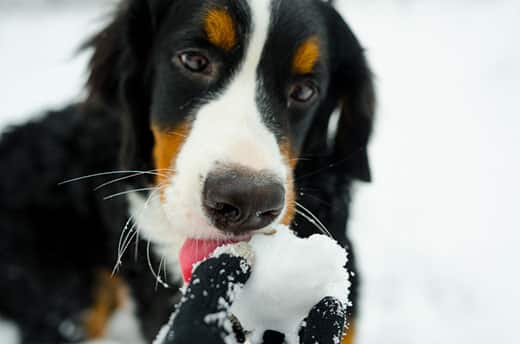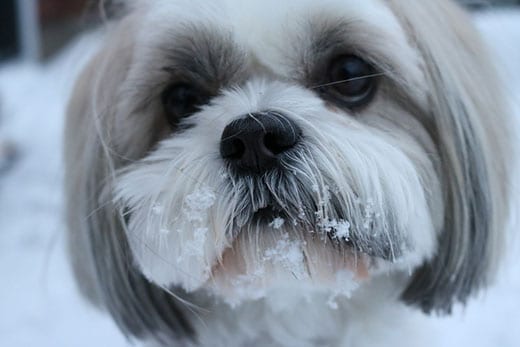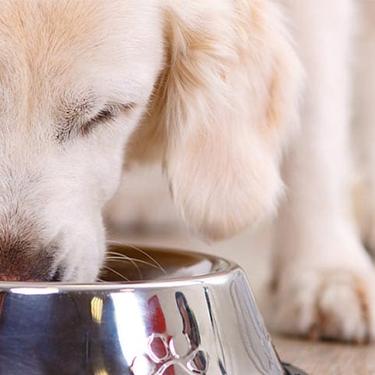
-
Find the right food for your pet
Take this quiz to see which food may be the best for your furry friend.
Find the right food for your pet
Take this quiz to see which food may be the best for your furry friend.
Featured products
 Adult 7+ Perfect Digestion Chicken, Whole Oats & Brown Rice Recipe Dog Food
Adult 7+ Perfect Digestion Chicken, Whole Oats & Brown Rice Recipe Dog FoodScience Diet's breakthrough nutrition supports ultimate digestive well-being & healthy microbiome for dogs age 7+
Shop Now Small & Mini Savory Stew with Chicken & Vegetables Dog Food
Small & Mini Savory Stew with Chicken & Vegetables Dog FoodA delicious complement to the nutrition of Science Diet Small & Mini 7+ dog food
Shop Now Adult Healthy Cuisine Roasted Chicken, Carrots & Spinach Stew Dog Food
Adult Healthy Cuisine Roasted Chicken, Carrots & Spinach Stew Dog FoodDelicious roasted chicken paired with tender vegetables in a succulent stew
Shop NowFeatured products
 Adult 7+ Tender Tuna Dinner Cat Food
Adult 7+ Tender Tuna Dinner Cat FoodWith delicious chunks in a decadent gravy
Shop Now Adult 7+ Senior Vitality Chicken & Vegetable Stew Cat Food
Adult 7+ Senior Vitality Chicken & Vegetable Stew Cat FoodImproves Everyday Ability to Get Up & Go
Shop Now Adult Savory Entrée Can Variety Pack Cat Food
Adult Savory Entrée Can Variety Pack Cat FoodPrecisely balanced nutrition with the delicious taste of savory minced chicken to help fuel the energy needs of cats during the prime of their life
Shop Now -
Dog
- Dog Tips & Articles
-
Health Category
- Weight
- Food & Environmental Sensitivities
- Urinary
- Digestive
- Joint
- Kidney
-
Life Stage
- Puppy Nutrition
- Adult Nutrition
- Senior Nutrition
Cat
- Cat Tips & Articles
-
Health Category
- Weight
- Skin & Food Sensitivities
- Urinary
- Digestive
- Kidney
-
Life Stage
- Kitten Nutrition
- Adult Nutrition
Featured articles
 Do Dogs and Cats have Belly Buttons?
Do Dogs and Cats have Belly Buttons?Learn whether cats & dogs have belly buttons like humans, what the function is, and if there are any health concerns associated with it.
Read More Why Are Dogs and Cats So Cute?
Why Are Dogs and Cats So Cute?If waggy puppy dog tails and furry kitten yawns make you swoon, you're not alone. Why are cats so cute? And, dogs too! Let's find out!
Read More Does My Pet Hate Me?
Does My Pet Hate Me?Learn tips for bonding with your pet if you've ever thought, 'My dog doesn't like me, or 'Why do I have a standoffish cat?'
Read More -


If you've ever taken your dog out in the snow, chances are that they sneaked a lick (or a chomp) of the cold stuff. But why do dogs eat snow? And is it safe? If you've ever been concerned that your dog ate snow, here's what you need to know.
Why Do Dogs Eat Snow?

Only dogs know for certain why they enjoy eating snow, but there are several possible reasons for the behavior:
- They're thirsty: Unless you've just filled your pup's water bowl, their water might not be the freshest. But it doesn't get much fresher or cleaner than newly fallen snow.
- It's in their DNA: Before dogs were domesticated, their ancestors in colder climates often had to rely on eating snow to hydrate. It is possible that that innate behavior still exists coded in their DNA thousands of years later.
- They have a health condition: If your pooch eats snow obsessively, check with your veterinarian. It could be a sign of Cushing's disease or thyroid or kidney problems, says Petful. PetHelpful adds that some dogs eat snow for the same reason they eat grass: to induce vomiting in order to settle an upset stomach.
- They just like it: It's probably curiosity that first prompts a dog to nibble on snow. Whether it's the taste, the texture or the cold sensation, something about that first bite provides enough pleasure to encourage them to keep doing it.
Is It Safe for Dogs to Eat Snow?

As long as the snow is clean, it's safe for dogs to eat in small quantities. The danger comes primarily from toxic substances, such as ice melt or antifreeze, that might contaminate the snow. And eating snow in large quantities could dangerously lower your dog's body temperature.
Another danger is that your dog might bite down on or consume harmful objects, such as sticks, rocks or trash that's buried beneath the snow. These could break teeth, cause choking or, if swallowed, cause intestinal damage or blockage that could necessitate surgery.
Never let your dog eat dirty, discolored or partially melted snow, or snow that covers roads, sidewalks or other heavily trafficked areas. And under no circumstances should you allow your dog to eat snow that's been driven on or piled up by a snowplow. If your dog ate snow that gives you cause for concern, give your vet a call.


Tasty Tips
How to Discourage Your Dog From Eating Snow
It might be impossible to prevent dogs from eating snow entirely, but here are a few things you can do to discourage your dog from turning the next snowfall into a buffet:
- Provide them with plenty of clean drinking water that you refresh regularly.
- Use a leash when walking your dog in the winter. Try to avoid snow, especially puddles of melted snow, as these are more likely to contain chemicals.
- Bring a toy or treats on your walk to distract your dog from the snow.
- Either put booties on your dog when going out or thoroughly clean their paws when they return inside from the snow.
It's normal for dogs to enjoy noshing on snow once in a while. Just remember that it's up to you, as a pet parent, to make sure they don't consume anything harmful along with the snow. Of course, despite your best efforts, your dog might find a way of eating something they shouldn't. If this happens, don't panic. Instead, seek your vet's opinion.


Jean Marie Bauhaus is a pet parent, pet blogger, and novelist from Tulsa, Oklahoma, where she usually writes under the supervision of a lapful of fur babies.
Related products
Related articles

Learn how today's wet dog food blends have gotten a face lift, and how you'll provide your dog the nutrition he needs in the form he loves.

Learn about choosing the right dog food to help ensure your adult dog will receive the correct balance of nutrition.

Learn the the dangers of feeding your dog chocolate, which types are most dangerous, and what to do if you discover that they have consumed chocolate.

Proper nutrition for your pregnant or nursing dog is vital to her and her puppy's health. Learn what you should do provide her with the proper nutrients.

Put your dog on a diet without them knowing
Our low calorie formula helps you control your dog's weight. It's packed with high-quality protein for building lean muscles, and made with purposeful ingredients for a flavorful, nutritious meal. Clinically proven antioxidants, Vitamin C+E, help promote a healthy immune system.
Put your dog on a diet without them knowing
Our low calorie formula helps you control your dog's weight. It's packed with high-quality protein for building lean muscles, and made with purposeful ingredients for a flavorful, nutritious meal. Clinically proven antioxidants, Vitamin C+E, help promote a healthy immune system.

